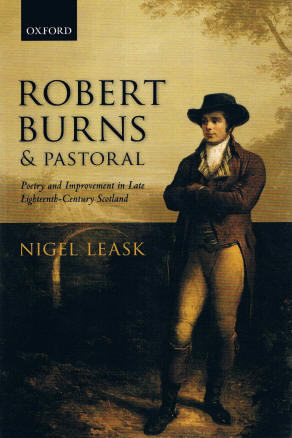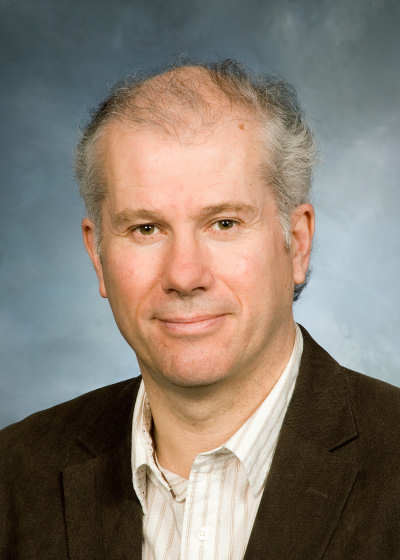|
Edited
by Frank R. Shaw, FSA Scot, Dawsonville, GA, USA
Email:
jurascot@earthlink.net
I
met Nigel Leask in January of this year while attending the one-day
conference Burns and Beyond hosted by the Centre for Robert Burns
Studies at the University of Glasgow. I had heard great things about Nigel’s
prize-winning book, and I was pleased to note in the symposium materials
that he was to be the keynote speaker. Following the conference, the
speakers were invited to dinner at a rather trendy tapas bar in Glasgow
called the Café Andaluz. The tables were small and I was lucky enough to sit
across from Nigel, so our conversation was for me a night to remember. I
found Nigel to be engaging and informative, and he exuded a degree of warmth
that left me feeling as if I had known him since school days, and at my age
that would have been a long time ago! Below is a review of his book that I
have wanted to share with our readers since the conference, but the
outpouring of articles from many of the conference speakers has postponed it
until now. Here is a tip to those who know their Burns…buy this book to
increase your knowledge and you may become what others call you - a Burns
scholar.
Robert Burns & Pastoral
By Nigel Leask
 No
one ever suggested to Nigel Leask that his book on Robert Burns would be one
of the world’s least necessary books. If so, they would have been wrong!
Neither is it just for “students and scholars of 18th-century
and Romantic literature and Scottish studies” as one web site suggests. Some
of it may be a bit academic but there is more than enough of Leask’s amazing
insight into Burns. The book offers a new perspective on Scotland’s Bard and
will remain within arm’s reach of my desk when I work on fresh and modern
ideas for speeches or articles! No
one ever suggested to Nigel Leask that his book on Robert Burns would be one
of the world’s least necessary books. If so, they would have been wrong!
Neither is it just for “students and scholars of 18th-century
and Romantic literature and Scottish studies” as one web site suggests. Some
of it may be a bit academic but there is more than enough of Leask’s amazing
insight into Burns. The book offers a new perspective on Scotland’s Bard and
will remain within arm’s reach of my desk when I work on fresh and modern
ideas for speeches or articles!
It
is books like Leask’s Robert Burns & Pastoral, Poetry and Improvement
in Late Eighteenth-Century Scotland that will help remove Burns from
the oft held marginalized concept in English studies in America, the United
Kingdom and Europe. Robert Burns has been relegated to Scotland and was not
considered worthy to be placed along side the mainstream poets of the 18th
century by too many academics around the world. But help is on the way with
writers like Leask, Robert Crawford, Carole McQuirk, Liam McIlvanney, Murray
Pittock, Leith Davis, and Gerard Carruthers (who also is Director of The
Centre for Robert Burns Studies at the University of Glasgow) as they usher
in a new day for Burns. No more will Burns be seen as an out-of-date and
incomprehensible poet assigned to a babbling foreign language, unappreciated
by many and only understood by few.
In
his book, Leask took me on a trip of remembrance of my family who, like
Burns, were dirt farmers. The agricultural lessons written in these pages
appealed to me and brought back memories of long ago of the smells of barns
and chicken coups, that walk behind a plow as a boy where the view never
changes, and the purity of the freshly plowed fields under my bare feet. But
there too were rewards that are missed today such as the vegetables that
were gathered from the garden just moments before being cooked on the wood
stove.
Leask’s insight on the Bard becomes a “‘big’ book on Burns” according to
Andrew McNeillie at Oxford Press. This marvelous volume takes the reader
even farther into the everyday world, chapter by chapter, of New Husbandry,
Scots Pastoral, The Making of a Poet, Pastoral Politics, Beasties, Hellfire
and Common Sense, The Annals of the Poor, The Deil and the Exciseman, along
with Robert Burns and British romanticism. To use an American illustration,
Leask approaches each chapter as a home-run hitter who is comfortable in the
batter’s box as he hits topic after topic out of the park. Yes, this is good
material full of invigorating thought, highly illustrative of a new day for
Burns readers.

Nigel Leask, Regius Professor of English
Literature, University of Glasgow.
The author began work on this book before his appointment to the University
of Glasgow’s Regius Chair in English in 2004. In appreciation of Leask’s
talent, the book was joint winner of Scotland’s 2010 Saltire Prize for
research book of the year. Martyn Wade, Scotland’s National Librarian said
“…the book by Nigel Leask presents a major rethink of Burns, placing him
firmly within the Scottish and European Enlightenments and providing a fresh
view of all the main poems.”
“I’m over the moon” was Leask’s reaction to being a joint winner of the
Saltire Prize, and perhaps that should have been the title of the book!
(FRS: 5.3.11) |

